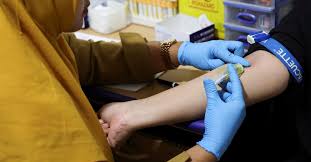Indonesia Launches $183 Million Free Health Screening
Indonesia has launched an annual free health screening, a 3 trillion rupiah ($183.54 million) initiative to prevent early deaths the country’s health ministry said.
Under the programme, all Indonesians will eventually be entitled to a free screening on their birthday, the ministry said.
The screening, which is not mandatory, includes blood pressure, tests to determine the risk of heart problems or stroke, and eye tests, the ministry said.
The programme is initially targeting under-sixes and adults aged 18 and over, Health Minister, Budi Gunadi Sadikin told newsmen last week.
The leading causes of death in the world’s fourth most populous nation include stroke, heart disease, and tuberculosis, data from the World Health Organization shows.
Budi said the 3 trillion rupiah allocation for the programme was about 1 trillion less than originally planned after President Prabowo Subianto ordered budget cuts to help fund election promises, including giving free meals to school children.
At a health centre in Jakarta, about 30 people had signed up for the screening on the first day.
Teacher Ramika Dewi Saragih said she underwent checks on her breasts, cervix, eyes, and more and was not apprehensive. “I was really looking forward to this,” the 33-year-old said, adding that more people should take up the opportunity.
A health ministry spokesperson said the target for the checks this year was 100 million people.
Budi said the programme was intended to promote preventive care as Indonesians tended to check for illnesses only when they already had them.
“Our culture is checking when we’re already sick … that cuts closest to the grave,” he said.
He said the programme was the biggest the ministry had ever undertaken, surpassing COVID-19 vaccinations.
Budi added the screening, which is to be rolled out at more than 20,000 health centres and clinics, also includes mental health tests to determine signs of depression or anxiety.
Researchers at the University of Indonesia’s Economic and Social Research Institute warned the programme could risk burdening the country’s already-strained local health centres, citing uneven distribution of drugs or doctors.
REUTERS/Christopher Ojilere


Comments are closed.